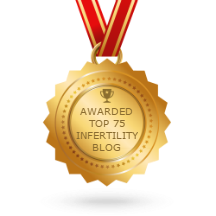Does Thyroid Disease Affect Fertility?
Although the thyroid gland is relatively small, it can cause quite a stir in the body when it does not function as normal. Uncontrolled thyroid disease has effects on major organs in the body, such as the heart, brain, liver, kidneys, and skin. Furthermore, thyroid issues and infertility are common problems in women trying to get pregnant. With such a major role to play in the functioning of so many organs in the body, the question is, how much do you know about the thyroid gland and thyroid disease?
What is the thyroid gland?
The thyroid gland is a butterfly-shaped gland located in the front of the neck, below Adam’s apple. It is wrapped around the trachea, with a small tissue called the isthmus, joining the two lobes. The gland uses iodine to secrete the hormone T4, which is the primary hormone, some of which is converted to T3, which is the active hormone. These hormones regulate the metabolism of the body, which in turn controls breathing, internal body temperature, and heart rate. Too little or too much of these hormones cause several thyroid disorders; out of with the most common are Hypothyroidism and Hyperthyroidism.
What is Hypothyroidism? What is the relation between Hypothyroidism and Infertility?
Hypothyroidism occurs when less to no thyroid hormones are secreted in the body. Some of the symptoms of Hypothyroidism are:
- Weight Gain
- Increase in Cholesterol levels
- Depression
- Fatigue and Muscle Pain
- Hair Loss
- Dry Skin
- Sleep Apnea
- Irregular and heavy periods
Hypothyroidism and Infertility are closely connected, as it causes a lack of ovulation in women, as well as irregular periods. This makes it difficult for women to get pregnant, sometimes even causing infertility issues. If the thyroid problem is undiagnosed during pregnancy, it can result in stillbirths or growth retardation of the child.
What is Hyperthyroidism? What is the role of Hyperthyroidism in Infertility?
When excess thyroid hormones are secreted in the body, it causes Hyperthyroidism. People with Hyperthyroidism often face:
- Weight Loss
- High Blood Pressure and Rapid Heart Rate
- Anxiety and Moodiness
- Brittle Hair
- Increase in Appetite
- Missed or Irregular Periods
Hyperthyroidism causes reproductive issues in women. It can also affect pregnancy, as pregnant women with Hyperthyroidism can experience a spike in blood pressure, which triggers miscarriage and delivery complications. It can also cause Tachycardia and poor weight gain in the mother and child.
Is Thyroid Disease connected to Male Infertility?
Almost one-third of Hypothyroidism cases occur in men. This can lead to a variety of issues such as low sperm count and mobility, reduction in testicular function, drop in libido, and even erectile dysfunction. If left undiagnosed, Hypothyroidism can cause male infertility. Generally, once the thyroid disease is diagnosed, the negative effects can be reduced over time.
How is Thyroid Diseases Diagnosed? What are the treatment options?
Thyroid Disease can simply be diagnosed by conducting a thyroid function test. Here, the thyroid levels are checked by taking a blood test, and an abnormality is detected. Once detected, an endocrinologist studies the case and prescribes medications to control thyroid levels. Regular checkups are needed to ensure that the dosage is appropriate, and the medication is working. Once the levels are regulated, the positive effects are seen on fertility as well. Women who have severe thyroid issues and face infertility problems can visit infertility specialists and opt for IVF treatments, which ensure the best chance of pregnancy.
There are various Hypothyroidism and Infertility success stories, where infertile women were able to conceive naturally, as well as through ART (Assisted Reproductive Technology). So, if you are someone who is trying to conceive, despite having thyroid disease, don’t be disheartened. After all, the struggle is part of the story.





 (+91) 880 557 7600
(+91) 880 557 7600
 Abhyankar Road, Dhantoli, NAGPUR-12
Abhyankar Road, Dhantoli, NAGPUR-12






Leave a Reply